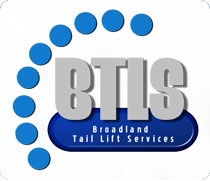A simple guide for Tail Lift Operators.
Do you operate or own a tail Lift?
Are you confused by the legal requirements, for tail lifts and their maintenance?
This is a jargon free explanation of statutory legislation and recommendations that apply to tail lifts.
IRTE (Institute of Road Transport Engineers)
IRTE is a professional sector of SOE (Society of Operations Engineers). IRTE, one of the most respected names in UK transport, was founded in 1944 and is recognised as an impartial voice of the industry. It encourages high standards of excellence with an emphasis on safety in operation, demonstrated by its research and education programme for members and industry. IRTE members come from a wide variety of transport-related roles including apprentices, technicians, workshop managers, fleet engineers, transport managers and company directors.
SOE (Society of Operations Engineers)
SOE is a professional membership organisation that represents more than 18,000 individuals and companies in the engineering industry. It supports and encourages best practice and health and safety initiatives, and is committed to the ongoing growth and personal development of its members, through specialist knowledge-sharing and professional learning. The SOE has three Professional Sectors; IRTE (Institute of Road Transport Engineers), IplantE (Institution of Plant Engineers) and BES (Bureau of Engineer Surveyors). A Licensed Member of ECUK, SOE is able to nominate members with the required qualifications to all three sections of ECUK’s national register of engineers.
Introduction - This guide provides some basic information and highlights your legal responsibilities in the use, maintenance and examination of tail lifts. It is written in a simple question and answer format and is intended to be used as a basic guide to clarify current legislation that applies to tail lifts and tail lift manufacturers’ recommendations. It is important that you refer to the relevant Regulations and Approved Code of Practice to familiarise yourself with your duties (see useful reading section at the back). This guide has no legal status but it is considered best industry practice and, if followed, would normally be regarded as sufficient to comply with relevant Health and Safety Law.
| 














